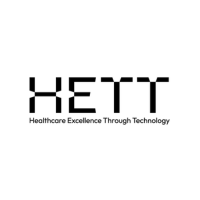HETT Show 2024 featured a thought-provoking session on transforming and personalising healthcare delivery through the use of personal health accounts. Chaired by Videha Sharma, Clinical Innovation Lead at the University of Manchester, the session also included insights from Charlotte Refsum, Director of Health Policy at The Tony Blair Institute for Global Change. Together, they explored the benefits of integrating health data and using digital tools to empower both patients and healthcare systems.
The Vision for Digital Health
Opening the session, Videha Sharma highlighted the fragmented state of healthcare data and the inefficiencies it creates. He referred to a recent paper by The Tony Blair Institute, Preparing the NHS for the AI Era: A Digital Health Record for Every Citizen, which outlines the case for unified digital health records. Sharma emphasised that such a system could break down silos, create a single source of truth, and improve the coordination of care across different providers.
“Such a digital health record could bring together data across different silos and provide a single source of truth for all our health and care,” Sharma noted. This integration, he explained, would enhance decision-making and enable innovative solutions to tackle the growing challenges in healthcare.
Insights from Charlotte Refsum
Charlotte Refsum expanded on the vision presented in the paper, delving into the transformative potential of personal health accounts. These accounts, she explained, would give citizens seamless access to their own health data, allowing them to make informed decisions about their care.
Refsum described how integrated health data could help clinicians better understand patients' needs and deliver care that is both timely and personalised. She also emphasised the role of digital tools in enabling this shift, creating opportunities for a more proactive and patient-centric approach to healthcare delivery.
Throughout her remarks, Refsum highlighted the potential of artificial intelligence to unlock even greater value from integrated health data. AI could identify patterns, predict health risks, and recommend personalised treatments, making care delivery more efficient and impactful.

Overcoming Challenges
Both speakers acknowledged the complexities involved in implementing personal health accounts. Key challenges include addressing concerns about data security and ensuring that the necessary infrastructure is in place to support integration. However, the benefits of such systems ranging from improved patient outcomes to greater efficiency were deemed well worth the effort.
As the session concluded, Sharma and Refsum made a strong case for the urgent adoption of personal health accounts. With healthcare systems worldwide under increasing pressure, they argued, bold steps like these are essential to meeting the needs of patients today and in the future.
“Personal health accounts aren’t just about digitising records, they’re about transforming lives,” Sharma said. His words resonated with an audience eager to embrace a future where care is more personalised, connected, and effective.
Join us at the upcoming HETT Show on 7-8th October 2025. Register your interest to find out when regsitration goes live.
%20(1).png?width=500&height=58&name=HETT%20insights%20logo%20RGB-04%20(1)%20(1).png)


